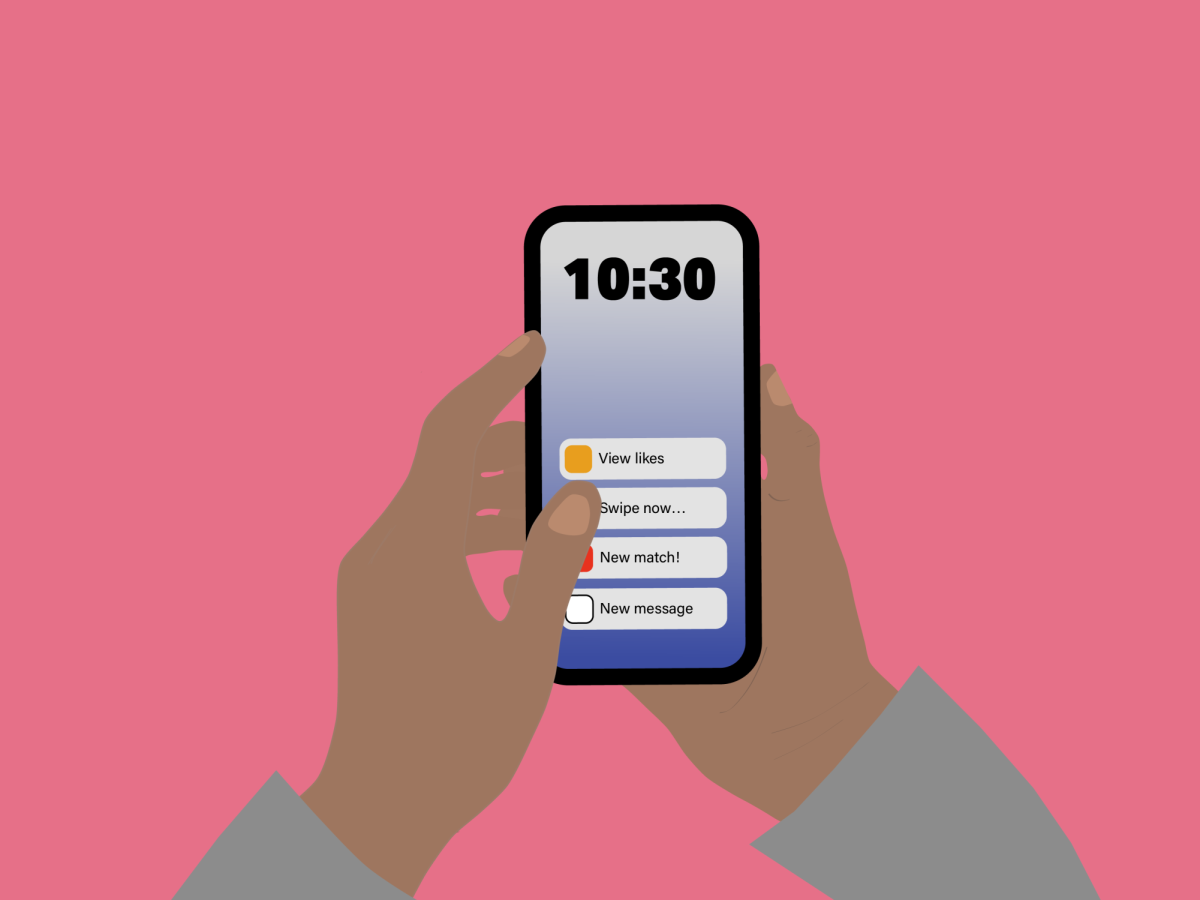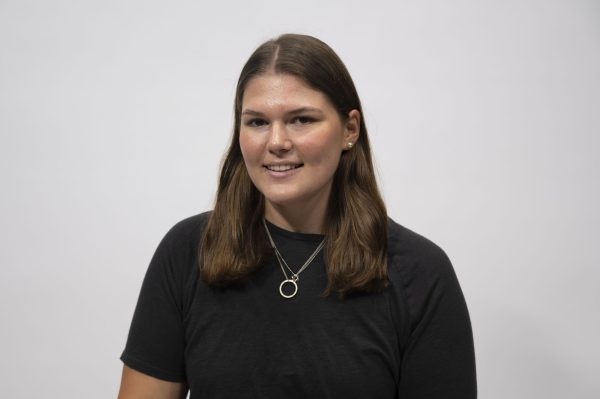“They like me, they like me not.” Swipe right, swipe left. The modern equivalent of picking petals off a flower — dating apps like Tinder, Hinge and Bumble rely on algorithms and a little bit of chance to try to connect their users and bring about blossoming relationships.
Users on dating apps create profiles that are to be seen and used to make judgments on others’ appearance and perceived character. Alongside their pictures, profiles include details about an individual’s school, height, social habits and interests. All of these aspects work together to create a digital trading card that gets passed around the app.
Thus, users have the benefit of being fully in control of how they portray themselves to others, regardless of how genuine it is or isn’t.
For college students, the allure of dating apps is strong considering it’s an easy, convenient and controlled way to explore the single population in one’s proximity. Apps allow you to interact with people you may not have otherwise due to being in different classes or even going to different schools. Plus, users only have to be as involved with the app as they want to be. As a result, dating apps have become an increasingly normal facet of dating culture.
Considering that previous generations had to rely solely on meeting significant others organically and in person, it is a strange concept that dating can now be a passive online act. Though our generation typically doesn’t pass judgements on couples who met online since it is seen as an example of success with the app, I think this is where some of the stigma coming from older generations surrounding dating apps lies. Older generations see dating apps as disingenuous since you don’t have to meet someone before asking them out, which doesn’t reflect their dating practices.
But at their core, dating apps are structured around users’ photos and the attraction between users based on those images. In this sense, dating apps are reflective of real life since physical attraction is typically the initiator that draws couples to one another, both in the past and present.
The issue with such apps isn’t that connections are initiated online but rather that people’s reasons for using them lack consistency. Dating apps can be used frivolously by individuals looking for hookups or more earnestly by people who genuinely want to go on dates in the hopes of meeting someone.
And while dating apps attempt to silo users based on their intentions for using the platform, the categories remain ambiguous and inconsequential. Such categories range from “not sure” to “looking for a relationship,” but these terms can mean different things to different people. Furthermore, every user is shown other people from all categories, regardless of what they selected for themselves. So an individual may see someone whose pictures they’re attracted to and details they’re interested in, but that doesn’t mean it will be a compatible match based on what different users want out of the experience.
A running joke between myself and friends is that dating apps are a “game” where the goal is to match with people but never go out with them. The prize is the validation of knowing that people you find attractive feel the same way about you through the confirmation of a match. We know well enough that an actual date isn’t a likely outcome of online flirtation.
That’s not to say that matches made on dating apps cannot be legitimized into romantic relationships in real life, but I don’t think it’s wrong to say that a large portion of dating app users aren’t looking for actual connections.
With the rapidity of swiping on dating apps and the near-instant gratification that comes as a result, users can get used to anticipating the dopamine-hit of a match and thinking that there may be an even better one if they continue to view more profiles. The way I see it, this ability to keep options vastly open has contributed greatly to the downfall of dating in general.
People are incredibly willing to forgo consistency and won’t use the word “dating” simply to be able to avoid seeming like a “bad person” should they choose to end things with someone they’ve been going on dates with to pursue other avenues. I think that current dating culture has led to a misconstrued idea that the word dating is synonymous with being in a relationship.
The purpose of dating is to intermittently spend time with someone in order to see if there is a romantic connection between you. By no means is it a binding act between two people, but I do think it’s an important aspect of dating culture that has become trivial because people feel trapped by the concept of it.
But without going on dates, how can people ever find genuine connections and relationships?
This all-or-nothing mindset that people have developed around dating has to be corrected. Dating is meant to be fun and purposeful, not one or the other. People have gotten caught up in the idea that it can’t be both because of the supposed looming threat of commitment, but it’s not a threat so long as people are upfront with their intentions and feelings during the process.
On dating apps and in real life, people have the power to seek out what they want but it requires that others be honest with them as well. I think most people would benefit from this approach of dating rather than being avoidant or overly nonchalant about it.
So, communicate with others, stay true to yourself and bring back dating in the truest sense of the word.
Kara Orsini is a fourth-year health sciences major and columnist for The News. She can be reached at orsini.k@northeastern.edu.
The Huntington News is dedicated to serving the Northeastern University community with original, professional reporting and creating an environment in which student journalists can learn from one another. Support an independent, free press at Northeastern University with your donation today.

















